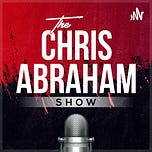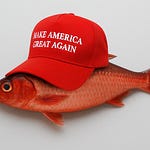There’s an old saying: never build on soft ground. Never build your castle on leased land. In Hawaii, we’d say: never build your future on a Queen’s trust you don’t control.
July 1st, 2025, is the day that saying punched through the pretty speech. USAID — America’s moral leasehold on half the world — closed its doors.
The numbers are acid: The Lancet says up to 14 million lives lost by 2030. 88 deaths every hour. A third of them kids. Bono wept. Bush and Obama called it a “travesty.” Elon Musk — the billionaire who turned USAID into a piñata — called it “a criminal organization.” Trump? He just smiled for the cameras at “Alligator Alcatraz” and shrugged. The empire’s soft arm got amputated, and the empire didn’t bleed.
Maybe it never really cared to.
Kennedy’s Dream & The Moral Lease
JFK told Congress in 1961 there was “no escaping our moral obligations as a wise leader and good neighbor.” Noble, right? He made foreign aid sound like a New Testament parable on the Potomac — but Kennedy was too clever to sell pure charity. He tied the lifeline to the hard rock of Cold War logic: every dollar of bread bought a brick in the wall against Communism.
This was the empire’s genius: you keep your boots polished and your halo clean. You feed the hungry and you make sure they don’t become a threat. You inoculate kids and inoculate your markets.
But moral leasehold is still a lease. It works until you decide it doesn’t. And when you’re the world’s landlord, you hold the keys.
Bush’s Bargain & The Soft Empire’s Best Self
If Kennedy was the preacher in the white suit, George W. Bush was the missionary with a ledger. PEPFAR wasn’t just charity — it was a civilizational bargain. Bush didn’t love gay people, didn’t much like big government, but he understood that letting 25 million Africans die of AIDS would be a stain too dark for American evangelical conscience.
So he signed the checks. Big ones. PEPFAR saved lives. The deal was always transactional: We help you, you align with us. We keep you alive, you stay in our orbit.
That’s not evil — that’s the soft empire in its best, honest form: a pact. Your borrowed time is worth it to us, until it isn’t.
Obama, Bono, and the Globalization Sweet Talk
Obama was the grown-up at the party. He told staff, “Your work has mattered and will matter for generations to come.” He knew the score: soft power is soft control. USAID kept states from collapse, bought loyalty with mosquito nets and water towers, grew partners for future trade deals.
Bono calls them the best of us. Maybe they were. But aid has a moral hazard: it freezes a dysfunctional system in amber. It saves the baby today — but the well never gets drilled tomorrow. Sometimes the famine worsens because the aid trucks keep coming.
This is the bitter truth no one wants to admit: a lifeline can be a leash. Sometimes you get rescued, sometimes you just get bound to the next donor’s next photo op.
Reagan’s Ghost, Musk’s Woodchipper
Reagan said the nine scariest words were: “I’m from the government, and I’m here to help.”
Musk made it his meme. His “Department of Government Efficiency” put USAID through the woodchipper — not because the aid didn’t work but because it did, too well, for too long. It made a world half-built on hope that the landlord would never foreclose.
But the voters are tired. The taxpayers want the moat to stay inside the walls now. 17 cents a day, they say — why spend it saving kids in Sudan when you can buy votes in Ohio? That’s the cold math of a republic.
And the lease? The lease just expired.
The Hardest Question
Is this nihilistic? Maybe. Or maybe it’s just realism.
Aid is like AIDS meds: once you’re on them, you have to stay on them or you die. What kind of sovereignty is that? What kind of neighbor builds you a house with a kill switch on the lights?
So ask yourself: would you rather drown alone — or live forever on borrowed time, with a leash tied to your next meal?
That’s the empire’s trick. That’s the trade.
Closing: Your Stone
Never build your castle on soft ground. Never build your future on a moral leasehold. Relief is a bridge, not a bedrock. If you let your children live on seventeen cents of pity, don’t act surprised when the pity stops.
If that makes me an asshole for saying it — AITA? Probably. But the ground is still soft.
📚 APPENDIX
🗂️ HISTORICAL CONTEXT
1961 — Kennedy launches USAID. It’s pitched as America’s moral obligation and Cold War firewall. The world’s biggest carrot: we feed you, teach you, stabilize you — so you don’t join Moscow’s bloc.
1960s–80s — The Green Revolution. Billions in ag tech and seeds. Famines reduced but local farmers locked into supply chains funded by Western capital. Soft power as fertilizer.
1980s — Reagan era: foreign aid shrinks as “big government” boogeyman grows. But Cold War proxy states still drink from the spigot: think Afghanistan, where aid buys warlords’ loyalty against the Soviets. Sometimes “freedom fighters,” sometimes tomorrow’s Taliban.
2000s — Bush’s PEPFAR. The gold standard: a single disease program that saved 25 million. Evangelical morality meets soft empire leverage. The AIDS epidemic becomes a metric of U.S. soft power benevolence — and dependency.
2010s–2020s — The Global War on Terror era. Aid dollars mixed with military nation-building. Haiti becomes a “NGO graveyard”: billions spent, corruption rampant, dependency deepens. Afghanistan: trillions poured in — roads, clinics, schools — but who owns them when the plug pulls?
2020s–2025 — Populism takes the wheel. Trump 2.0, Musk’s “Department of Government Efficiency.” USAID axed. 83% of programs frozen overnight. The biggest humanitarian faucet in the world shut tight — by design.
Did USAID Actually Close on July 1, 2025?
No, the claim isn’t exactly true. USAID didn’t fully “close its doors” on July 1, 2025 — but it did stop existing as an independent agency. It was dismantled and folded into the State Department after major budget cuts and political battles. So the name “USAID” is basically gone, but some programs limp along under the State Department’s wing — with far fewer staff, slashed budgets, and huge project shutdowns.
About the “14 million deaths” — that’s real, but it’s a worst-case projection, not a guarantee. A major study published in The Lancet estimated that if these cuts continue and global development funding isn’t replaced, up to 14 million extra people could die by 2030, including around 4.5 million kids under five. But that’s if no other aid or private sector help fills the gap.
So:
USAID didn’t just vanish overnight, but it’s no longer the world’s biggest independent aid arm.
The death estimate is a dire warning about what could happen if the cuts stay in place for years — not a sure thing.
USAID is not being shut down completely, but a significant reorganization is underway, with some functions being transferred to the State Department. This reorganization is expected to be completed by July 1, 2025. The process involves realigning certain USAID functions to the Department of State and discontinuing those that don't align with the new structure.
❓ FAQ
Is foreign aid always a Trojan Horse?
It’s never only altruism. It’s insurance, leverage, a license to influence. The grain bag has the flag on it for a reason. That doesn’t make it evil — just real. If you live under the empire’s umbrella, don’t be shocked when they use the shade as a bargaining chip.
Can countries ever “graduate” from soft power patronage?
A few have. South Korea: once a major aid recipient, now an aid donor. But that took decades, brutal wars, American garrisons, and a deliberate push to swap soft power for trade independence. Not every place gets that runway — or the will to take it.
Is it better to die free than live dependent?
That’s the raw moral trap. Starve now or build a house on rented ground? What’s more human — rescue at a price, or dignity with a tombstone? No donor ever asks that in the grant proposal. But every village knows.
Why does Bono keep crying about it?
Because in the absence of big moral machinery, you’re left with nothing but death counts. If you believe one life is worth saving, you’ll fight for the next bag of rice. It’s not naive — it’s a paradox. He knows the leash is real. He just wants it softer.
Is AID like AIDS meds?
Yes. That’s the perfect analogy. Once you start ARVs, you must keep taking them. Same for food relief: the more you depend, the more your local systems calcify around the drip. Stop the flow — you crash worse than before. It’s chronic care, not a cure.
Is there a better way?
A few models exist: micro-loans, direct cash transfers, tech transfer, local co-ops. But none scale at the speed a crisis demands. Sometimes the old colonial guilt is still the fastest relief valve — until it isn’t.
🔍 BULLSHIT CHECK
Chris:
Yeah, it’s cold to say “bootstrap or drown.” It ignores how soft power got those places fragile in the first place. Colonialism, proxy wars, puppet regimes. You can’t drop a bomb, then 20 years later say, “Good luck, fix it yourselves.”
Bono:
The tears are real — but the savior complex is too. Aid bureaucracies sustain themselves. They feed contractors, careers, elites. Haiti after the quake: billions pledged, billions wasted, tent cities still rotting. Sometimes the “best of us” are just well-meaning middlemen.
America:
The soft power myth was always half cover. Feed the world to keep it in your orbit. When the orbit’s no longer strategic — or too expensive at home — the world’s margin kids get pushed off the ledger. The moral leasehold ends.
🗃️ GLOSSARY
Soft Power: Non-military influence — trade, aid, culture, NGOs. The velvet glove.
Moral Leasehold: The borrowed mercy you build your life on, but never own.
Trojan Horse Aid: Relief with strings. What’s given can be taken — or turned into leverage.
PEPFAR: President’s Emergency Plan for AIDS Relief. Bush’s signature global health program. Saved millions, built political loyalty.
Rentier State: A nation whose elites live on external payments — not homegrown production.
Stockholm Syndrome of Aid: The paradox where you thank the empire for saving you, even as you stay dependent.
Moral Hazard: When rescue breeds riskier behavior — or permanent dependency.
AID vs. AIDS Analogy: Relief aid works like ARV therapy: it buys time but locks you in. Pull it suddenly, and the crash is brutal.
💭 FINAL MEDITATION
If you build your children’s survival on the grace of strangers, you can’t rage when the grace expires.
If you think the empire’s help is a blank check, you haven’t been reading history.
Relief is a bridge, not a bedrock. Build on your own stone — or don’t be shocked when the ground caves.
🧵 Pull Quotes — Ready for Tweets
1️⃣ “Never build your castle on soft ground. Never build your future on a moral leasehold.”
2️⃣ “USAID saved lives — and made the world its tenant.”
3️⃣ “Relief is a bridge, not a bedrock. The pity stops. The leash snaps.”
4️⃣ “Aid is like AIDS meds: once you’re hooked, you’re hooked forever — or you die.”
5️⃣ “A Trojan Horse with rice bags and vaccines: the soft empire’s secret.”
6️⃣ “Reagan’s ghost, Musk’s woodchipper — the landlord foreclosed.”
7️⃣ “If that makes me an asshole for saying it — AITA? Probably. But the ground is still soft.”
tl;dr
USAID, America's largest humanitarian arm, officially closed its doors on July 1, 2025, after 63 years of operation. This closure is projected to cause up to 14 million deaths by 2030, with a third of them being children under five.
Foreign aid, including USAID, was never just charity; it was always conditional and transactional. It functioned as a "soft empire" tool and a "Trojan horse," buying friends, markets, buffer states, moral authority, and stability for U.S. interests.
Aid created a "moral leasehold" or "borrowed time," meaning the help was never permanent. This "borrowed time" allowed recipients to live on an "insurance policy" that prevented failed states from exporting terror, disease, or refugees, costing Americans about seventeen cents a day.
The paradox of aid is that while it saves lives, it can also create dependency, undercut local agency, and freeze dysfunctional systems in place. Aid is compared to AIDS medication (ARV therapy): once started, stopping it abruptly can lead to a worse crash than before, as local systems become reliant on the "drip."
The decision to shut down USAID was driven by a rise in isolationist populism, with figures like Trump and Elon Musk (who called USAID "corrupt") advocating for its termination. The underlying message is that "borrowed time always runs out" and "the lender always reserves the right to call the debt."
The core takeaway is that relief should be a bridge, not a bedrock. Nations and communities are urged to "build on their own stone" rather than relying on external "grace of strangers" or a "moral leasehold," as that support is not guaranteed to last.














Share this post